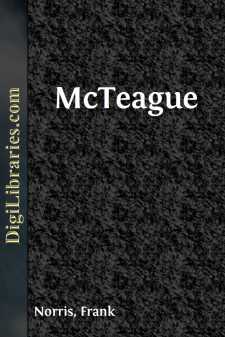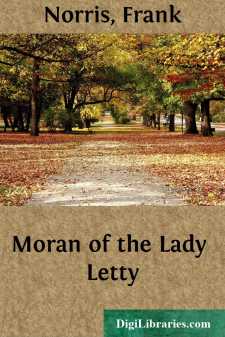Categories
- Antiques & Collectibles 13
- Architecture 36
- Art 48
- Bibles 22
- Biography & Autobiography 816
- Body, Mind & Spirit 145
- Business & Economics 28
- Children's Books 18
- Children's Fiction 14
- Computers 4
- Cooking 94
- Crafts & Hobbies 4
- Drama 346
- Education 58
- Family & Relationships 59
- Fiction 11831
- Foreign Language Study 3
- Games 19
- Gardening 17
- Health & Fitness 34
- History 1378
- House & Home 1
- Humor 147
- Juvenile Fiction 1873
- Juvenile Nonfiction 202
- Language Arts & Disciplines 89
- Law 16
- Literary Collections 686
- Literary Criticism 179
- Mathematics 13
- Medical 41
- Music 40
- Nature 179
- Non-Classifiable 1768
- Performing Arts 7
- Periodicals 1453
- Philosophy 66
- Photography 2
- Poetry 897
- Political Science 203
- Psychology 45
- Reference 154
- Religion 516
- Science 126
- Self-Help 86
- Social Science 82
- Sports & Recreation 34
- Study Aids 3
- Technology & Engineering 59
- Transportation 23
- Travel 463
- True Crime 29
Frank Norris
Frank Norris was an influential American novelist and journalist, associated with the naturalism movement in literature. Born in 1870, he is best known for his works "McTeague" and "The Octopus," which explore the impact of social and economic forces on individuals. Norris's writing often depicted the harsh realities of life, aiming to reveal the powerful, often destructive forces of nature and society.
Author's Books:
Sort by:
by:
Frank Norris
CHAPTER 1 It was Sunday, and, according to his custom on that day, McTeague took his dinner at two in the afternoon at the car conductors' coffee-joint on Polk Street. He had a thick gray soup; heavy, underdone meat, very hot, on a cold plate; two kinds of vegetables; and a sort of suet pudding, full of strong butter and sugar. On his way back to his office, one block above, he stopped at Joe...
more...
by:
Frank Norris
I At eight o'clock in the inner vestibule of the Auditorium Theatre by the window of the box office, Laura Dearborn, her younger sister Page, and their aunt—Aunt Wess'—were still waiting for the rest of the theatre-party to appear. A great, slow-moving press of men and women in evening dress filled the vestibule from one wall to another. A confused murmur of talk and the shuffling of many...
more...
by:
Frank Norris
Chapter I It had just struck nine from the cuckoo clock that hung over the mantelpiece in the dining-room, when Victorine brought in the halved watermelon and set it in front of Mr. Bessemer's plate. Then she went down to the front door for the damp, twisted roll of the Sunday morning's paper, and came back and rang the breakfast-bell for the second time. As the family still hesitated to...
more...
by:
Frank Norris
Chapter One It was always a matter of wonder to Vandover that he was able to recall so little of his past life. With the exception of the most recent events he could remember nothing connectedly. What he at first imagined to be the story of his life, on closer inspection turned out to be but a few disconnected incidents that his memory had preserved with the greatest capriciousness, absolutely...
more...
by:
Frank Norris
At four o'clock in the morning everybody in the tent was still asleep, exhausted by the terrible march of the previous day. The hummocky ice and pressure-ridges that Bennett had foreseen had at last been met with, and, though camp had been broken at six o'clock and though men and dogs had hauled and tugged and wrestled with the heavy sledges until five o'clock in the afternoon, only a...
more...
by:
Frank Norris
CHAPTER I Just after passing Caraher's saloon, on the County Road that ran south from Bonneville, and that divided the Broderson ranch from that of Los Muertos, Presley was suddenly aware of the faint and prolonged blowing of a steam whistle that he knew must come from the railroad shops near the depot at Bonneville. In starting out from the ranch house that morning, he had forgotten his watch,...
more...
by:
Frank Norris
THE SURRENDER OFSANTIAGO or two days we had been at the headquarters of the Second Brigade (General McKibben's), so blissfully contented because at last we had a real wooden and tiled roof over our heads that even the tarantulas—Archibald shook two of them from his blanket in one night—had no terrors for us. The headquarters were in an abandoned country seat, a little six-roomed villa, all on...
more...
by:
Frank Norris
A DEAL IN WHEAT I. THE BEAR—WHEAT AT SIXTY-TWO As Sam Lewiston backed the horse into the shafts of his backboard and began hitching the tugs to the whiffletree, his wife came out from the kitchen door of the house and drew near, and stood for some time at the horse's head, her arms folded and her apron rolled around them. For a long moment neither spoke. They had talked over the situation so...
more...
by:
Frank Norris
I. SHANGHAIED This is to be a story of a battle, at least one murder, and several sudden deaths. For that reason it begins with a pink tea and among the mingled odors of many delicate perfumes and the hale, frank smell of Caroline Testout roses. There had been a great number of debutantes "coming out" that season in San Francisco by means of afternoon teas, pink, lavender, and otherwise. This...
more...










